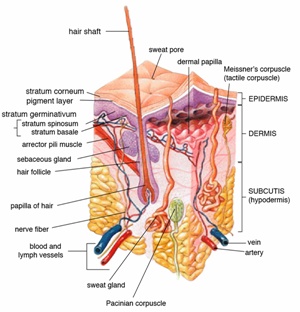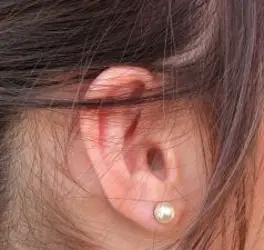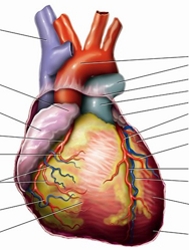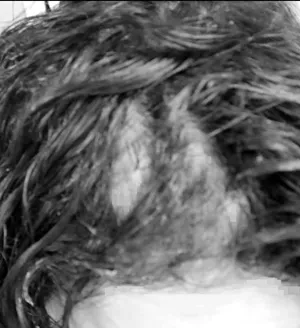
PCOS And Women's Hair Loss
PCOS And Women's Hair Loss
Women suffer more intensely from hair loss than men.As of current times, tremendous progress has been made in diagnosing the underlying cause of hair loss, specifically for women.
There can be many causes of female hair loss, but one well-known cause is Polycystic Ovarian Syndrome (PCOS).
PCOS is estimated to impact nearly 60 percent of women worldwide who currently deal with some degree of PCOS.
It's an endocrine disorder that may cause hair loss. It can also trigger a range of related scalp and skin problems. Many times it can lead to infertility.
It's even found among schoolchildren. PCOS is tied to excess androgenetic alopecia. This is also known as AGA or female pattern hair loss (FPHL). AGA typically presents as a diffuse thinning of the hair across the entire scalp.
Besides PCOS, the cause of female pattern hair loss remains unclear. Androgenetic alopecia in women is associated with an increased risk of PCOS. A big question is which comes first, PCOS or AGA?
PCOS Diagnosis And Symptoms
An ultrasound scan showing multiple small cysts and old unruptured follicles with eggs in both ovaries confirms PCOS.
The abnormal hormonal ratio by an increase in LH: FSH ratio of more than one can be established by a lab test on day 2 of the cycle.
Known symptoms include, but are not limited to, the following:
- Hair thinning, hair loss, flaky or irritated scalp
- Reduced stamina, lethargy, chronic fatigue
- Excessive weight gain with difficulty losing weight regardless of dietary measures
- Acne or frequent skin infections, which might include fungal infections
- Dark color behind neck and underarms
- Irregular periods or late cycles (oligomenorrhea or amenorrhea)
- Hirsutism, in which male pattern hair growth occurs in women. This can include excessive hair on the face, chest, abdomen, and legs.
- Difficulty achieving or getting pregnant
- Frequent miscarriages
- Reduced interest in sex (libido) and reduction in lubrication during intercourse
- Early incidence of diabetes, high BP, and high cholesterol
Medical Research Into PCOS
 The hair follicle and mesenchymal dermal papilla labelled at the top. Wikipedia
The hair follicle and mesenchymal dermal papilla labelled at the top. WikipediaResearch by Mount Sinai Hospital in New York, St. Mary's Hospital, and Imperial College, along with late great British trichologist Philip Kingsley uncovered a link between hair loss in women and PCOS as far back as 2000.
The research was based on a PCOS study that evaluated women with thinning hair. The researchers discovered that 72 percent of women with thinning hair taking part in the study actually suffered from PCOS.
As a result of these studies, researchers believe that PCOS may cause hair follicles to decrease in size. This results in weaker, thinner, and falling hair.
Researchers noted that other possible symptoms of PCOS may include a flaking or compromised scalp.
The most common symptoms are irregular periods, weight gain, facial and chest hair growth as well as adult acne.
A High Protein Diet Can Help PCOS
According to Reuters Health, January 2012, Danish researchers have determined that a diet high in the ratio of protein to carbohydrates can help women suffering from PCOS.
"Replacing carbohydrates with protein in ad libitum diets improves weight loss and glucose metabolism. It seems to offer improved dietary treatment for PCOS patients," Dr. Lone B. Sorensen told Reuters Health.
In The American Journal of Clinical Nutrition, the University of Copenhagen's Dr. Sorensen noted that most dietary interventions for PCOS focused on energy restriction. Indeed, many women with the condition are obese.
Because the Danish team wanted to know whether replacing carbohydrates with protein might be helpful, they recruited 57 women and assigned them through rank minimization to eat either a standard or high-protein diet. Neither group had any kilojoules restriction.
The High-Protein Diet
The high-protein diet provided more than 40% of energy from protein, 30% from fat, and the remainder from carbohydrates. The standard diet derived less than 15% of energy from protein, 30% of energy from fat, and more than 55% from carbohydrates.
More than half the women dropped out throughout the six-month study. Seven women left because of pregnancy; another 23 did so for other reasons, going 27 to be evaluated.
The high-protein diet produced a significantly higher weight loss than the standard diet (7.7 vs. 3.3 kg). Women on the high-protein diet also lost more body fat (6.4 vs. 2.1 kg) and had a significantly greater reduction in waist circumference.
The high-protein diet also led to greater decreases in glucose, which persisted after adjustment for weight changes. This positive effect was thus independent of weight loss.
Summing up, Dr. Sorensen said, "This study shows that it is not necessary for PCOS patients to follow energy-restricted diets because protein satiates so well that a high protein diet will induce a spontaneous reduction in energy intake."
No Cure For PCOS
There is no cure for PCOS, but experts who specialize in women's hair loss issues have experienced positive results with hormonal treatments, nutrition, and exercise.
Treatment goals are based on specific symptoms, be it hair loss, infertility, excessive hair growth, obesity, or risk of heart disease or diabetes.
Anti-androgens or laser techniques, or electrolysis may reduce excessive hair growth and clear acne.
Some experts have noted there is also no guaranteed way to get hair that has already been lost to regrow. The only known way to minimize hair loss is to prevent it through early diagnosis and treatment.
If you've noticed an ongoing change in your hair or scalp conditions or have other possible PCOS symptoms, consult with a physician. Visit your primary physician, a dermatologist who specializes in hair loss, or similar health care professional.
Ask them to perform tests to determine an accurate diagnosis.
Ovulation-stimulating medications may help women with PCOS become pregnant.
Summary
It's important to be treated if PCOS exists.
Why? More than 50 percent of women with PCOS will have diabetes or pre-diabetes around 40-50 years old.
The risk of heart attack is 4 to 7 times higher in women with PCOS than in women of the same age without PCOS.
Women with PCOS are at greater risk of having high blood pressure and have high levels of LDL (bad) cholesterol and low levels of HDL (good) cholesterol.
Best wishes to all.Social Media Network Information
Please follow us on Twitter at: https://Twitter.com/HairBoutique. I look forward to meeting new people from all walks of Twitter and learning from their Tweets.




















